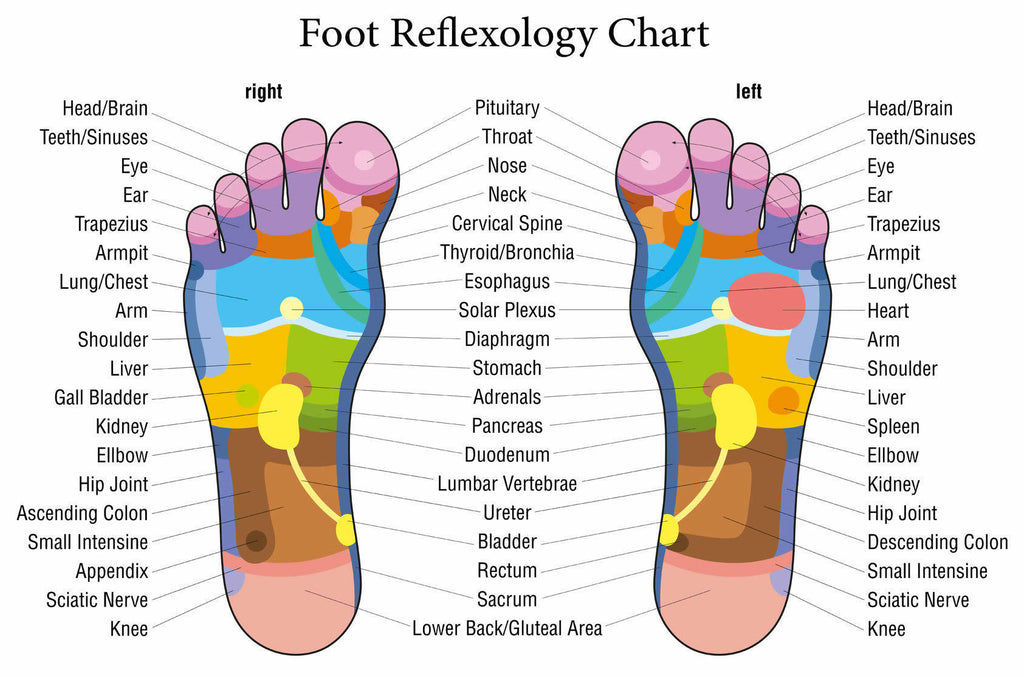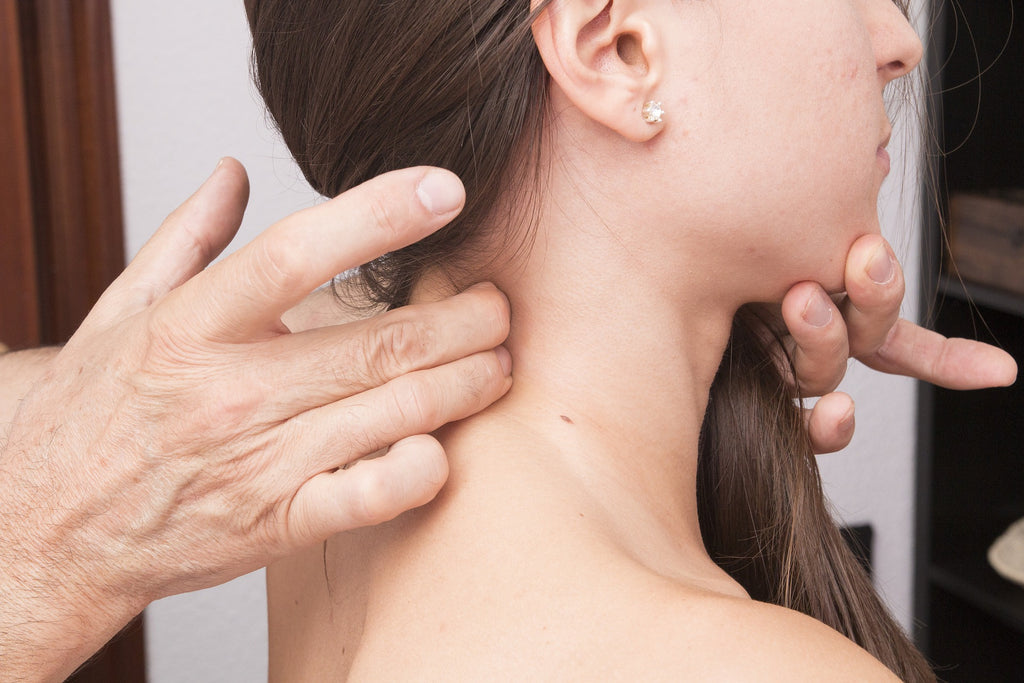Valuable Health Benefits of Reflexology

Are you interested in natural healthcare? Are you looking for a natural way to relieve your pain? Do you want to improve your quality of life without relying on prescription drugs or invasive treatments?
If so, you might want to consider giving reflexology a try. Never heard of reflexology? Don't worry, just keep reading.
Explained below is everything you need to know about the benefits of reflexology. You'll also learn how it works and how you can find a great reflexologist in your area.
What is Reflexology?
Before getting into the specific benefits of reflexology, it might be helpful to learn a bit more about what reflexology actually is.
Reflexology is a form of bodywork that involves the application of pressure to specific areas on the hands and feet.
When pressure is placed on these areas, the person receiving the treatment can experience improvements in pain, as well as improvements in their overall health.
How Does Reflexology Work?
At this point, you might be thinking something along the lines of, "What? How can pressure points on my feet affect the rest of my body?"
The theory behind reflexology is that specific points on the hands and feet are connected energetically to various organs or body parts.
By applying pressure to these points, a reflexologist can remove energy blockages and encourage better health in specific areas of the body.
Placing pressure on these points also helps balance out the nervous system and promote the release of endorphins. Endorphins are chemical messengers that can minimise pain and relieve stress.
Reflexology has been used for thousands of years in countries like China and Egypt. It came onto the scene in the Western world in 1915 when William H. Fitzgerald, who was an ear, nose, and throat doctor, introduced a concept known as "zone therapy."
Top 10 Health Benefits of Reflexology
There are lots of potential health benefits you can experience when you receive regular reflexology treatments. Some of the greatest benefits include:
- Fewer Aches and Pains
One of the greatest benefits of reflexology is the fact that it can treat a variety of physical aches and pains. Many people utilise reflexology to treat issues like neck pain, back pain, headaches, and migraines.
Reflexology can help minimise tension that often contributes to these aches and pains. It can also help relieve stress, which, in turn, can eliminate headaches and other types of pain.
The results of one study showed that, of 220 patients who received treatment from a reflexologist, 81 percent of them experiences significant improvement or complete cessation of their headaches.
The patients were treated for three months. During that period, they saw improvements in their general well-being, ability to interpret body signals, increased energy, and their ability to understand the causes of their headaches.
- Reduced Anxiety and Depression
Reflexology isn't just for physical health issues. It can also be very beneficial to individuals who are struggling with mental health challenges like anxiety and depression.
One reason reflexology is so effective at treating anxiety and depression is the fact that it promotes the release of endorphins. In addition to being your body's natural painkillers, endorphins can also improve your mood.
Reflexology also increases the body's production of serotonin. Serotonin is a hormone that is associated with increased feelings of happiness and positivity.
When the body begins producing more serotonin and endorphins, many people find that they can respond better to stressors and are able to manage their emotions more effectively.
If you have a stressful lifestyle or have been struggling with depression or anxiety lately, reflexology might be worth a try. This is especially true if you want to treat your condition without turning to antidepressants and anti-anxiety medications, both of which can cause a lot of unpleasant side effects.
- Improved Circulation
Reflexology is also beneficial to people who struggle with poor circulation. By stimulating specific pressure points on the hands and feet, reflexologists can promote better blood flow through the entire body.
When blood flows more freely throughout the body, that means all areas of the body are receiving more oxygen- and nutrient-rich blood. As a result, they will function better.
Better circulation also speeds up the healing process and promotes more efficient recovery for damaged cells and various injuries.
- Improved Sleep Quality
Do you suffer from insomnia or another sleeping disorder? Ninety percent of Australians do, too.
Instead of turning to potentially dangerous, habit-forming sleeping pills, try reflexology instead.
Reflexology is great for promoting relaxation and relieving stress. This, in turn, can make it easier for you to fall asleep at night.
- Reduced Blood Pressure
If you struggle with high blood pressure -- also known as hypertension -- you're at risk for a wide range of serious health problems, including:
- Heart disease
- Kidney disease
- Stroke
Reflexology is a great natural treatment for people who want to lower their blood pressure without relying on medications.
Research shows that reflexology is specifically beneficial to those who need to lower their systolic blood pressure. This is the top number of your blood pressure reading and refers to the pressure in the blood vessels when the heart beats.
The benefits of reflexology for people with high blood pressure likely has to do with reflexology's stress-relieving capabilities.
By minimising stress, reducing the body's production of the hormone cortisol, and promoting relaxation, people who receive regular reflexology treatments can experience a healthy reduction in blood pressure.
- Improved Nerve Sensitivity
If you experience poor nerve function or a loss of sensation in your extremities (this is often common among people with hypertension or diabetes), reflexology can help.
Many people who get regular reflexology treatments experience improvements in their nerve sensitivity. This has to do with the fact that reflexology promotes better circulation and blood flow.
Reflexology may not be able to restore full function and sensitivity to people who suffer from neuropathy. But, it can still significantly improve their condition and make easier for them to notice injuries and other issues on their feet and hands.
- Increased Energy
Because it improves circulation, reflexology can help people who struggle with depression or chronic fatigue feel more energised.
When blood is circulating efficiently through the body, all of the body's organs and systems work more efficiently. This, in turn, leads to more energy and increased alertness.
- Improved Liver Function
The liver is one of the busiest organs in the human body. Nearly everything you eat has to pass through the liver to be processed. Because the liver works so hard, it's common for it to function less than optimally, especially if you eat a less-than-clean diet or consume a lot of alcohol.
If your liver isn't functioning properly, you can even experience waste build-up. This, in turn, can lead to a variety of other health issues, including the following:
- Non-alcoholic fatty liver disease
- Hormone imbalances
- High cholesterol
- Digestive issues
- Insomnia
Reflexology helps encourage the liver to detox properly and eliminate waste that's been building up there. When the liver is functioning properly, it can also ensure that the food and drinks you consume are being metabolised efficiently.
- Reduced Inflammation for People with Arthritis
If you suffer from arthritis, reflexology can help to reduce joint inflammation and minimise aches and pains.
Reflexology reduces the body's need for chemicals known as prostaglandins. Prostaglandins function as pain mediators in the body, but they also trigger inflammation at the same time.
Reflexology also minimises inflammation by improving circulation and removing waste products from the blood and organs.
- Fewer PMS and Menopause Symptoms
Finally, reflexology can also help reduce symptoms associated with premenstrual syndrome (PMS) and menopause.
If you struggle with symptoms like mood swings, bloating, headaches, fatigue, or cramps before your period, or if you're suffering from hot flashes and depression while going through menopause, reflexology might be worth a try.
Reflexology promotes stress relief and relaxation, which can tame mood swings and help you feel more balanced. It also improves circulation and encourages the production of endorphins to minimise pain and discomfort during that time of the month.

How to Find a Great Reflexology treatment Therapist
Clearly, there are a lot of reasons one might want to consider trying reflexology. But, if you want to experience all the benefits that reflexology has to offer, it's important to work with a qualified and experienced reflexologist.
There's not a lot of regulation surrounding the reflexology field, and not all reflexologists are created equal.
Before you schedule an appointment with the first person who shows up on Google, do some research. This will help you learn about your reflexologist and determine whether or not they're the right person for you.
The following guidelines can help you sift through the different reflexologists out there and find someone whose services best suit your needs:
- Ask for recommendations from friends, family members, and healthcare providers
- Search online and look for reflexologists who are certified with specific professional associations
- Learn about their training and certifications (be sure to ask how many hours their training was and which board their certification is through)
- Find out how they work (remember, everyone has a different style)
- Find out whether or not they offer additional massage services or health products
- Learn about their payment options (do they accept insurance, do you have to pay out of pocket, do they offer payment plans, etc.)
Remember, too, that there are a lot of different reflexologists out there who are eager to help you.
If you don't have a good experience with one, that doesn't mean you have to swear off reflexology altogether.
You can always move on and start working with someone else until you find a reflexologist whose style works for you.
Who Should Avoid Reflexology?
Most people can benefit from reflexology treatments. But, there are a few people who ought to avoid them, including the following:
- People with foot injuries
- Women who are pregnant
- People who have blood clotting issues
- People who have open wounds on their feet
If any of these conditions apply to you, you may want to try a different type of massage therapy instead.
What to Expect from a Reflexology Treatment
If you're interested in experiencing some of the benefits of reflexology, you might also be wondering what to expect during your first treatment.
Every reflexologist is different and has a slightly different treatment style. But, there are some characteristics of the treatment that will remain the same no matter where you go.
A basic treatment usually lasts about thirty minutes and goes something like this:
- Your reflexologist will talk to you about your health history, symptoms, and current lifestyle
- The reflexologist will ask you to remove your shoes and socks
- You'll then sit comfortably on a massage table or in a reclining chair
- The reflexologist will look at your feet and hands and stimulate several different points to look for places where there is tension or tenderness
- They might also use massage to warm up the hands and feet
- Some reflexologists use lotion or oil, as well as tools like dowels, balls, or brushes
Most people find reflexology treatments to be very relaxing.
At certain points during the treatment, you may experience discomfort or tenderness. But, you shouldn't ever experience any pain. If you do, let your reflexologist know so they can adjust your treatment.
If you're worried about trying reflexology because you're ticklish, don't worry. Reflexologists use firm pressure during their treatments. This reduces the likelihood that you'll feel ticklish.

Schedule a Reflexology Treatment Today
As you can see, there are lots of benefits of reflexology that you can experience when you get regular treatments.
During a reflexology treatment, you'll learn a lot more about yourself and your health. You'll also likely experience relief from a wide range of symptoms.
Of course, in order to experience all the benefits that a reflexology treatment can provide, you need to work with a qualified reflexologist.
I have experience in several different types of massage therapy, as well as a certification in reflexology. And, I've been practising for over 20 years.
You'll be in good hands working with me!
